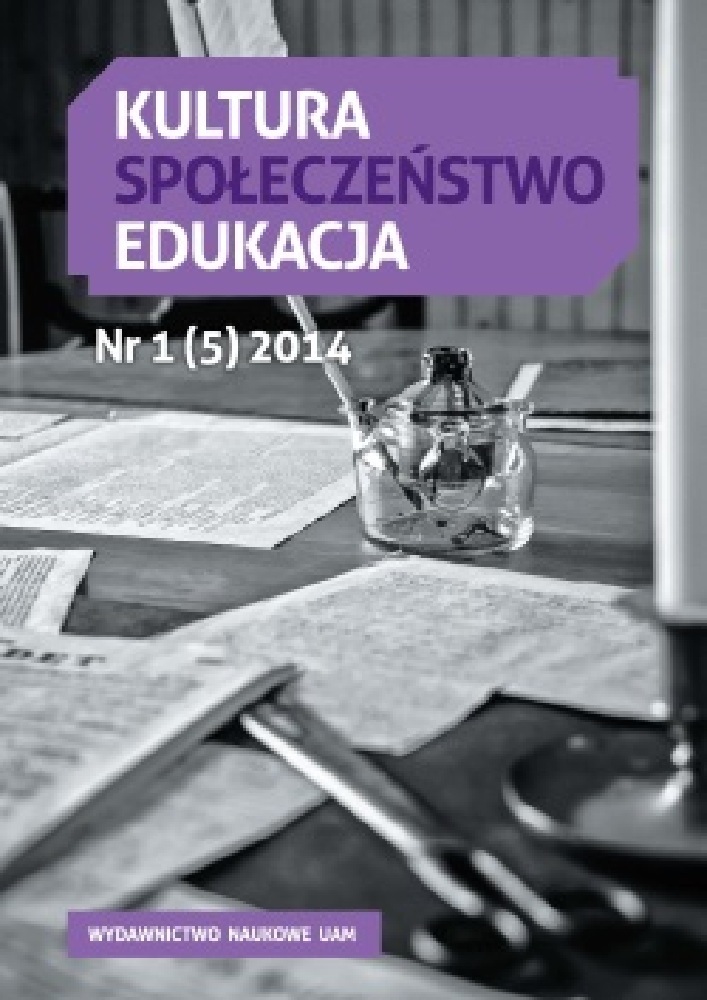Abstrakt
The topic of discussion is the discourse that shapes around pregnancy and childbirth in the past about two hundred years in Western countries – the mechanisms of its development, the most important manifestations and possible consequences. Theoretical basis for this problem is – Critical Discourse Analysis (CDA), and the main inspiration was the concept of M. Foucault – how according to the author this discourse is constructed, imposed and reproduced. „(...) in every society the production of discourse is at once controlled, selected, organized and subjected to redistribution by a number of procedures, whose role is to (...) take over the randomness of events (...)” writes Foucault. The purpose of the following discussion is, therefore, an attempt to show these „procedures” – methods and measures that are imposing and strengthen the medical discourse on pregnancy, childbirth, and more broadly the female body.Bibliografia
Balaskas J. 1997. Poród aktywny. Nowe spojrzenie na naturalny sposób rodzenia. Warszawa.
Bińczyk E. 2002. Nieklasyczna socjologia medycyny: praktyki medykalizacji jako praktyki władzy w ujęciu Michela Foucaulta. W W stronę socjologii zdrowia, 181-193. Lublin.
Buczkowski A. 2005. Społeczne tworzenie ciała. Płeć kulturowa i płeć biologiczna. Kraków.
Cahill H.A. 2000. „Male Appropriation and Medicalization of Childbirth: a Historical Analysis”. Journal of Advanced Nursing 33 (3): 334-342.
Czerwiński M. 1987. Wstęp. W M. Foucault. Historia szaleństwa w dobie klasycyzmu, przeł. H. Kęszycka, 5-12. Warszawa.
van Dijk T.A. 1993. „Principles of Critical Discourse Analysis”. Discourse & Society 4 (2): 249-283.
van Dijk T.A. 2009. Critical Discourse Studies: A Sociocognitive Approach. W Methods of Critical Discourse Analysis, 95-120. London.
Domańska U. 2005. Medykalizacja i demedykalizacja macierzyństwa. W Zdrowie i choroba. Perspektywa socjologiczna, 311-322. Tyczyn.
Fijałkowski W. 1974. Rodzi się człowiek. Warszawa.
Foucault. M. 2002. Porządek dyskursu. Wykład inauguracyjny wygłoszony w College de France 2 grudnia 1970, przeł. M. Kozłowski. Gdańsk.
Gallagher E.B. 1976. Ideologia konsumpcji a opieka zdrowotna. W Socjologia a zdrowie, 191-211. Warszawa.
Gromkowska-Melosik A. 2013. Kobieta epoki wiktoriańskiej. Tożsamość. ciało i medykalizacja. Kraków.
Huckin T. 2002. Critical Discourse Analysis and the Discourse of Condescension. W Discourse Studies in Composition, 1-29. Hampton.
Illich I. 1976. Limits to Medicine. Medical Nemesis: The Expropriation of Health. New York.
Jabłońska B. 2006. „Krytyczna analiza dyskursu: refleksje teoretyczno-metodologiczne”. Przegląd Socjologii Jakościowej II: 53-67.
Kubicka-Kraszyńska U., A. Otffianowska, U. Pietrusiewicz. 2006. O bólu porodowym i metodach jego łagodzenia. Warszawa.
Piątkowski W. 2002. W stronę socjologii zdrowia. W W stronę socjologii zdrowia, 15-58. Lublin.
Podgórska J. 2005. „Betonowe położnictwo”. Polityka 43 (2527): 4-11.
Purdy L. 2001. „Medicalization. Medical Necessity, and Feminist Medicine. Bioethics 15 (3): 248-261.
Rasch V. 2007. „Maternal Death and the Millennium Development Goals”. Danish Medical Bulletin 54: 167-169.
Reiger K., R. Dempsey. 2006. „Performing Birth in a Culture of Fear: an Embodied Crisis of Late Modernity”. Health Sociology Review 215: 346-373.
Rich A. 2000. Zrodzone z kobiety. Macierzyństwo jako doświadczenie i instytucja, przeł. J. Mizielińska. Warszawa.
Wagner M. 2006. Born in the USA. How a Broken Maternity System Must Be Fixed to Put Women and Children First. California.
Wertz D.C. 1996. What Birth Has Done for Doctors: A Historical View. W The Medicalization of Obsterics: Personnel, Practice, and Instruments, 7-24. New York.
Zola I.K. 1972. „Medicine as an Institution of Social Control”. Sociological Review 20: 487-504.
Licencja
Prawa autorskie (c) 2017 Luiza Nowakowska

Utwór dostępny jest na licencji Creative Commons Uznanie autorstwa – Bez utworów zależnych 4.0 Międzynarodowe.
